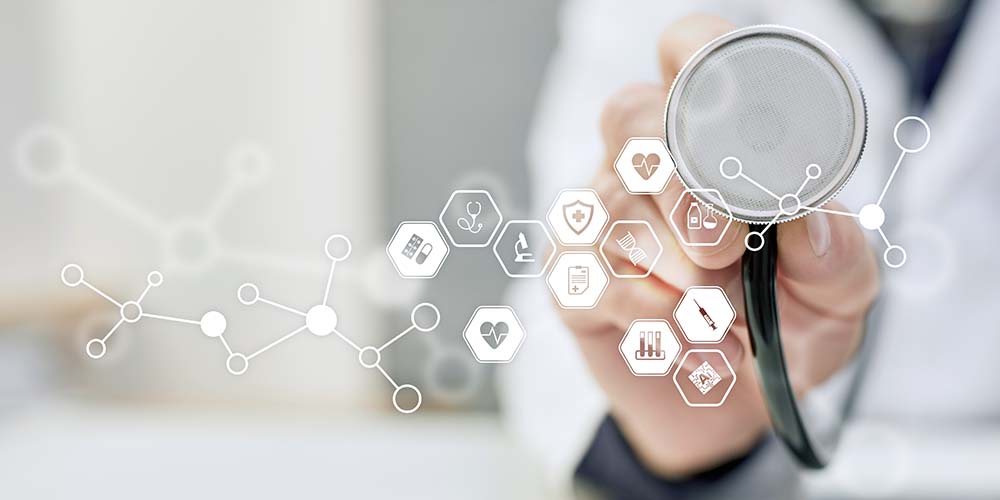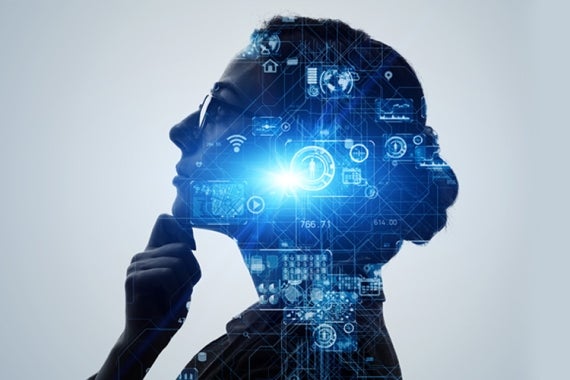Healthcare Tech Trends You Must Know, Stat!

Together, healthcare and technology weave a web that enriches and improves the lives of millions every day. The evolution of healthcare goes hand in hand with technology, and as technology advances, so does our ability to improve medical care.
Advances in the industry not only benefit the ill, but also the doctors who care for them, by reducing medical professionals’ workloads and the time needed to perform various treatments.
In 1952, the United States experienced more than 21,000 paralytic cases of polio prior to the introduction of the inactivated polio vaccine in 1955 and the oral poliovirus vaccine in 1961. These advancements resulted in a rapid decline in infections in the US, with the last known case of polio occurring in 1979. With advancements in technology, we no longer have to wait years for effective medicines or vaccines to be created.
With modern technology, the process of creating and producing vaccines has been greatly simplified, reducing the amount of time we need to produce them. For instance, the Pfizer-BioNTech COVID-19 vaccine was introduced a little over a year after the pandemic began, paving the way for other coronavirus vaccines to be created in rapid succession so that large groups of the world population could be immunised.
Healthcare technology has reshaped the way we operate, giving us the ability to track, record, monitor, and cure the sick with the added benefit of simplicity, accuracy, and mobility. Here are some of the latest technologies in the healthcare tech realm.

Tech You Can Wear
Wearable health monitors have gripped the market, creating new avenues for fitness brands to venture into. Wearable healthcare devices, such as Fitbits and smart watches, track users’ health-related data.
Some of the most popular health wearables this year include:
ECG Monitors
An electrocardiogram (ECG) is a record of the heart's rhythm and electrical activity. The signals are then studied by the doctor conducting the procedure.
Like all forms of technology that evolve to be faster, simpler, and more accurate, there are now wearable ECG monitors. They perform exceptionally well: results for diagnostic accuracy tested by ECG recorders in a supine position were 94.74%, and 97.37% in an upright position.
An example is the Move ECG, a smartwatch with the ability to track activity and function as an ECG monitor and send the data to the user’s doctor. With ECG monitors, instead of having to set up appointments and wait for your ECG results, doctors can directly obtain the data they need to effectively treat you.
Blood Pressure Monitors
Blood pressure monitors measure the pressure in the arteries as the heart pumps, and this process is typically done with a device called a sphygmomanometer. Advancements in health technology have opened the door to wearable blood pressure monitors like Omron Healthcare’s HeartGuide, which is worn like a wristwatch.
The device is engineered to detect fluctuations in your blood pressure throughout the day. The data is then collected, reviewed, and stored to aid you in improving your understanding of your heart health and enabling your doctor to gain more accurate insights into your well-being.
Wearable health tech can also encourage early diagnosis and possibly let you save on healthcare costs, as diseases detected early are generally more treatable.
Biosensors
As the name suggests, a biosensor is a device that measures chemical and biological reactions by producing signals that are proportional to the concentration of an analyte – a substance that is the subject of chemical analysis – in the reaction.
The year 2020 marked the height of the COVID-19 pandemic for many nations, with hospitals struggling to treat growing numbers of coronavirus patients and healthcare workers constantly exposed to those infected.
Biosensors perform clinical surveillance, such as recording vital signs, on patients, without requiring a healthcare worker to come into close or prolonged contact with patients. These devices proved especially useful during the pandemic as they can also detect deterioration in a patient, allowing healthcare workers to intervene and provide necessary attention.
VR Tools for Doctors
The statement seems far-fetched. How could the surgeon removing a tumour from a patient’s brain have learnt to do so via a virtual reality (VR) simulation?
Advances in healthcare technology have given rise to futuristic tools for surgeons to hone their skills. Extended reality is a comprehensive term that encompasses VR, augmented reality, and mixed reality. In brief, the technology overlays virtual elements on real-world images.
This technology allows doctors and surgeons to sharpen their skills when it comes to working on the human body, without putting patients at unnecessary risk or requiring the use of cadavers.The mental healthcare field can also benefit from VR, with those needing therapy for anxiety disorders, autism, and post-traumatic stress disorder (PTSD), among others, able to seek assistance via VR therapy.

Deploying VR in mental healthcare
VR and PTSD
In 2012, The US Naval Medical Centre conducted a study on VR therapy. Soldiers traumatised by wartime situations were engaged in digital simulations of combat, and by continuous exposure to said simulations, the soldiers could begin to be guided to process their trauma.
According to a 2022 study conducted by researchers at Edith Cowan University in Western Australia, VR therapy may be a viable alternative to traditional therapy. The study focused on the interaction between two people, represented by virtual avatars, in a three-dimensional virtual setting, and the results suggested that this model has the potential to fill a niche in psychological therapy, seeing as 30% of the participants were more comfortable interacting via the computer-mediated situation than they would be in a traditional face-to-face setting.
VR and Autism
Autism is known as a spectrum condition, meaning that those who have the condition experience it differently depending on where they fall on the spectrum. Those with autism, be they adults or children, experience challenges with social skills, behaviours, and verbal and non-verbal communication. In autism therapy, many techniques have been developed over the years, including the use of VR.
Floreo is one of the companies leading the charge in the use of VR to aid children with autism, creating the first behavioural therapy metaverse. This virtual world safely equips the user with the skills to navigate their everyday life. Experts can model social, communication, and behavioural skills, as well as coping mechanisms, on VR platforms, free of real-world stress factors for those with autism and other neurodiverse conditions.
VR and Schizophrenia
Schizophrenia is defined as a serious mental disorder that impairs the sufferer's ability to perceive reality. The disorder can result in a combination of hallucinations, delusions, and disordered thinking, known as psychosis.
While those suffering from schizophrenia typically rely on antipsychotics and therapy to cope with the disorder, VR may soon join the list of treatment options for these patients. To study how VR can facilitate the diagnosis and treatment of schizophrenia, a test was conducted with long-term psychotic patients. The study included a game in which the patients navigated through a seascape toward stars while avoiding sharks and eels.
The study found that VR-based methods offer a valuable way to detect psychosis symptoms in patients, and may be able to facilitate the training of new emotional and behavioural responses in them.
AI in Healthcare
Artificial intelligence (AI) aids a myriad of processes in healthcare, ranging from algorithms that augment healthcare providers’ expertise and support patient-centred decision-making, to workflow automation tools that can improve healthcare facilities’ operational efficiency to free up time to focus on patient care.
AI technology in the healthcare industry is more needed now than ever, as the global healthcare staff shortage is projected to increase to 18 million by 2030, making the incorporation of better-performing healthcare technology essential.
According to a 2022 report, 42% of healthcare professionals were burnt out in 2020 and 47% reported the same in 2021. A driving force behind rampant burnout among healthcare professionals is stress from the COVID-19 pandemic, and the use of AI to lighten their burden is key.
Lead Health Tech Developments
For healthcare technology to progress, accurate, well-presented insights into multiple areas of the industry are highly valuable. Contribute to advancements in healthcare technology with the skills you learn in Sunway University Online's Master in Data Science programme.
With core subjects like Deep Learning for Data Science and Programming for Data Science, our programme will equip you with the knowledge and tools you need to disrupt the healthcare industry with groundbreaking advancements in the future.
Schedule a call with our Education Counsellors to learn more about this pioneering programme today!





